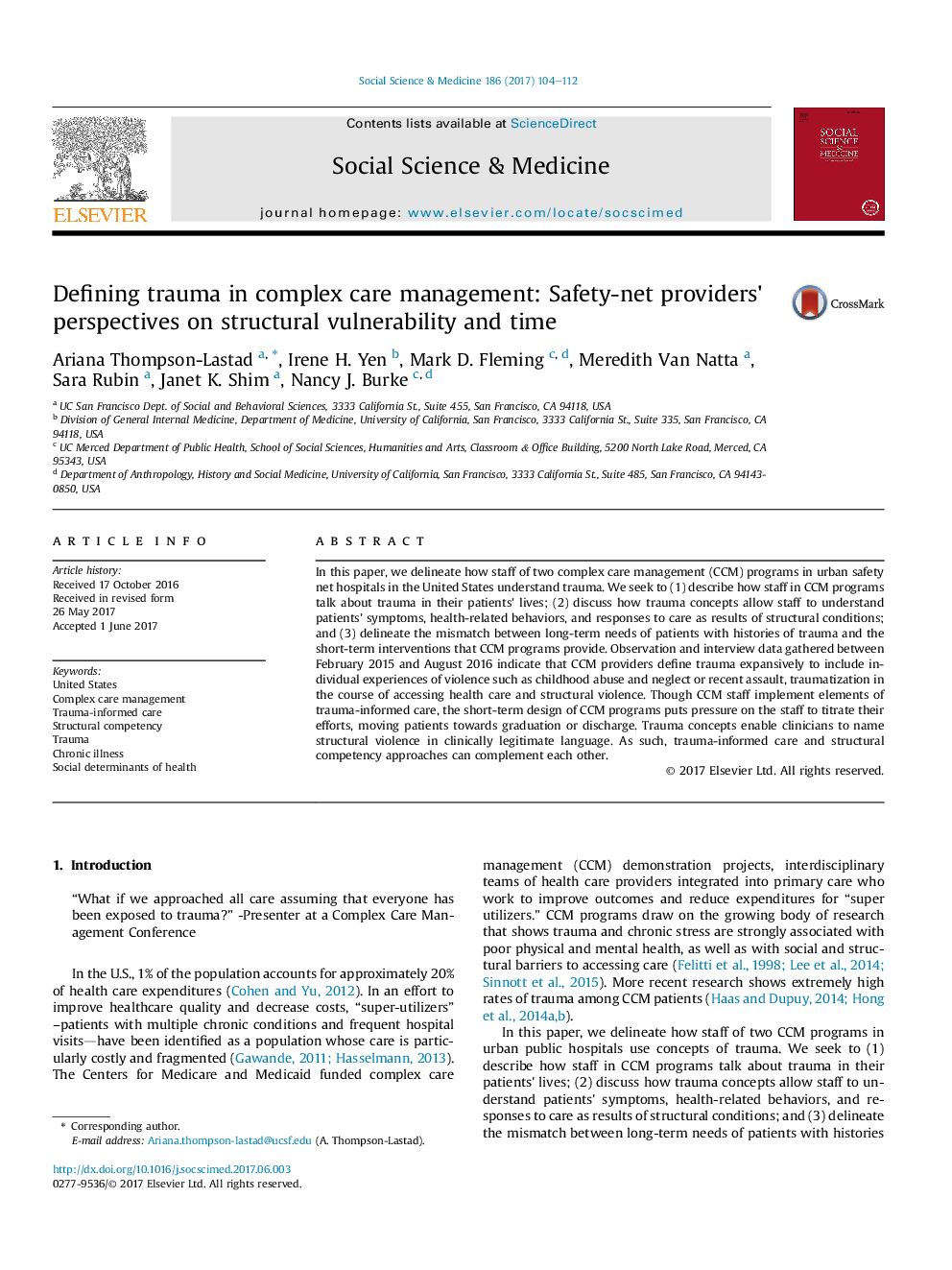ترجمه فارسی عنوان مقاله
تعریف تروما در مدیریت مراقبت پیچیده: دیدگاه ارائه دهندگان شبکه ایمنی در مورد آسیب پذیری ساختاری و زمان
عنوان انگلیسی
Defining trauma in complex care management: Safety-net providers' perspectives on structural vulnerability and time
| کد مقاله | سال انتشار | تعداد صفحات مقاله انگلیسی |
|---|---|---|
| 91144 | 2017 | 9 صفحه PDF |
منبع

Publisher : Elsevier - Science Direct (الزویر - ساینس دایرکت)
Journal : Social Science & Medicine, Volume 186, August 2017, Pages 104-112
ترجمه کلمات کلیدی
ایالات متحده، مدیریت مراقبت جامع، مراقبت آگاهانه تروما، شایستگی ساختاری، تروما بیماری مزمن، تعیین کننده های اجتماعی سلامت،
کلمات کلیدی انگلیسی
United States; Complex care management; Trauma-informed care; Structural competency; Trauma; Chronic illness; Social determinants of health;

